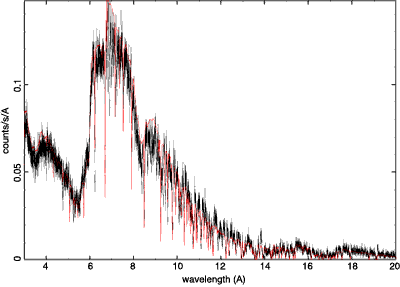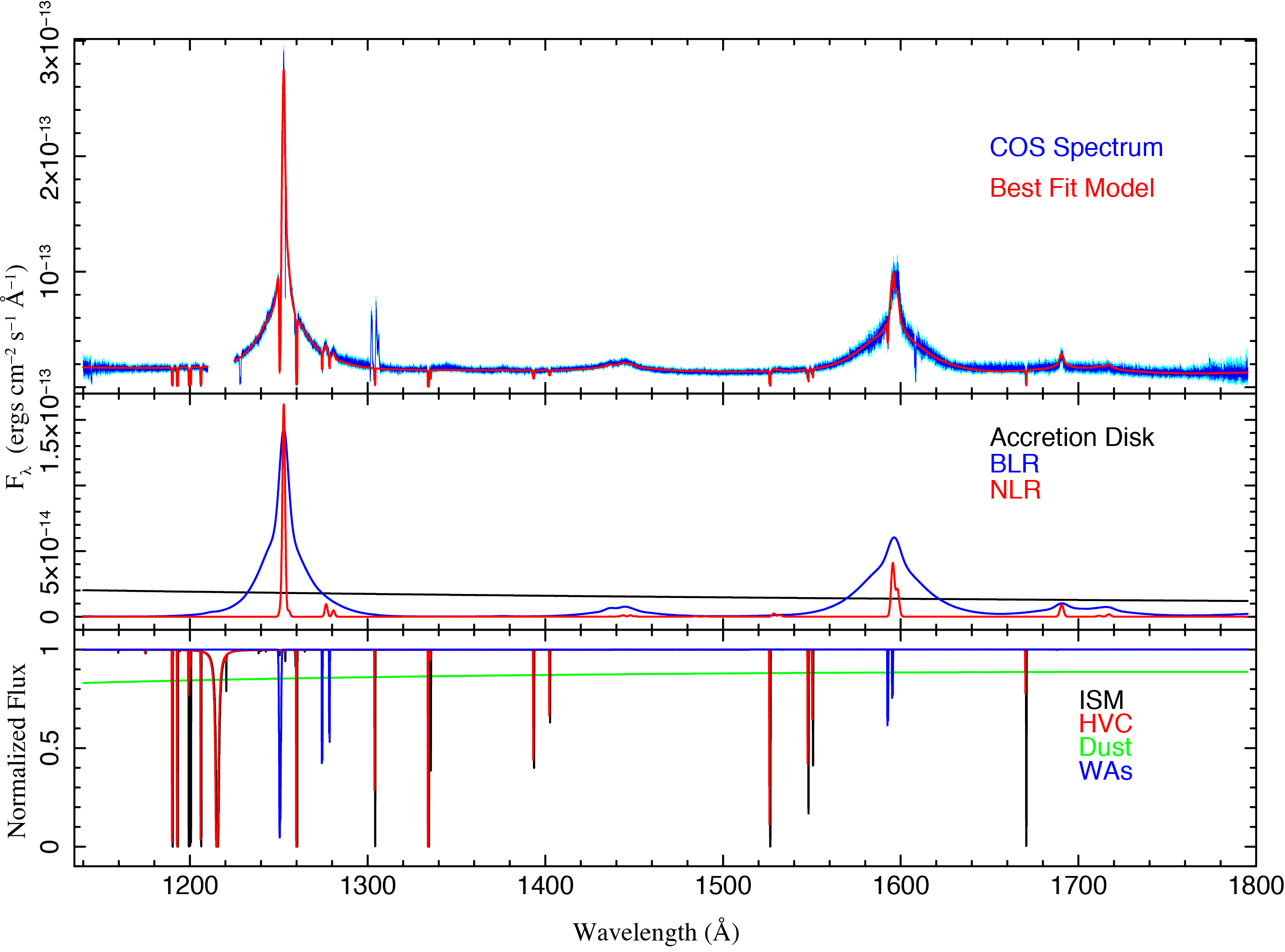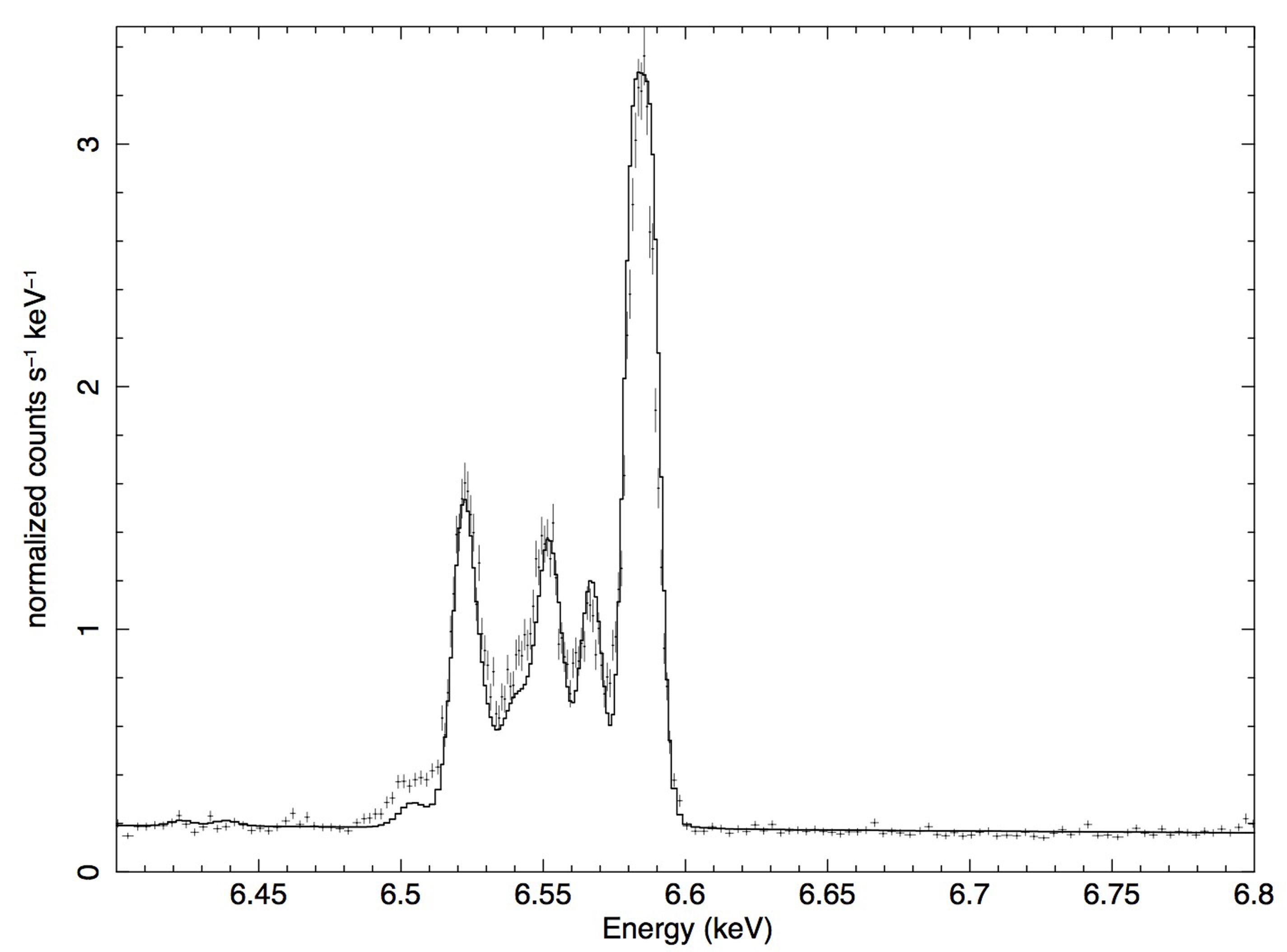XSTAR Home Page |

Two component XSTAR model fit to the 800 ks Chandra HETG observation of
NGC 3783. Model fit performed in xspec11 using the warmabs analytic
model.
| 
XSTAR model fit to the HST/COS combined emission and absorption line
spectrum of Mrk 290. Top panel: data and model fit;
lower panels: emission and absorption model components
(Zhang et al. 2014).
|

XSTAR model fit to the Hitomi observation of the Perseus cluster.
|
- What is XSTAR?
- XSTAR is a computer program for
calculating the physical conditions and emission spectra of photoionized
gases.
- How Do I Get XSTAR?
- Xstar is avaible in several different ways.
-
The XSTAR package is now integrated and distributed with the HEASARC's
standard HEASOFT package, so if your facility has this package installed then you
already have access to xstar.
-
XSTAR is also available as a standalone
package. The standalone XSTAR (or the full HEASOFT), is available
in either source or binary versions and it can be downloaded from
here .
-
Current develop version
-
The known issues page
-
A utility has been created for extracting atomic data and rates from the xstar database.
This utility is a standalone fortran program, which calls many of the xstar routines,
and returns the rate (forward and reverse) and raw atomic data for a single type of
rate for a single ion. It can be found
here
-
Warmabs, an analytic model for calculating warm absorber and emitter spectra within xspec
is available. This has the advantage that it avoids the intrinsic approximations
associated with use of tables for absorption with variable abundances
treated as multiplicative parameters, and the intrinsic clumsiness
of the use of tables. It also allows the use of arbitrary spectral
resolution, not limited by the internal xstar spectral resolution.
To use it, download the tarfile, unzip and untar
in your user area, and follow the installation instructions contained
in the README.
This includes the analogous routine which simulates the absorption (and emission) by a
gas in coronal equilibrium.
-
To access older releases of warmabs please contact us.
-
A version of xstar which allows for parallel computation of a grid of models
has been developed by Michael Noble of MIT.
pvm_xstar fosters
parallel execution of XSTAR over large, time-consuming sets of
parameters.
-
A php tool for making the xstinitable.par file needed by xstar2xspec is provided
by D. Maitra of the University of Michigan
here.
This is a GUI form which
produces the file in ascii. No error checking is provided.
- Online Documentation
- XSTAR documentation is included as part of the standard source
distribution and is also viewable here
or can be downloaded as a pdf.
The doxygen pages are ohere
- Related Files
-
Sample xstar output from optically thin photoionized model, alpha=1 power law,
line emissivities
-
Sample xstar output from optically thin photoionized model, alpha=1 power law,
line opacities
-
Sample xstar output from optically thin photoionized model, alpha=1 power law,
RRC emissivities
-
Sample xstar output from optically thin photoionized model, alpha=1 power law,
RRC opacities
-
Sample XSPEC table models
-
Line list.
-
Line finding list.
-
Level list.
-
Subroutine xstar
-
Postscript plots of atomic rates(42 Mbytes).
-
An ascii version of the xstar database (28 Mbytes).
-
The xstar database sorted according to process. (16 Mbytes).
-
Sample output: Lexington H II region.
-
Sample inputs.
-
Atomic data.
-
UADB, a comprehensive database for atomic data..
- Conferences
-
For questions and comments about XSTAR, contact Tim Kallman
or use the Feedback form
|